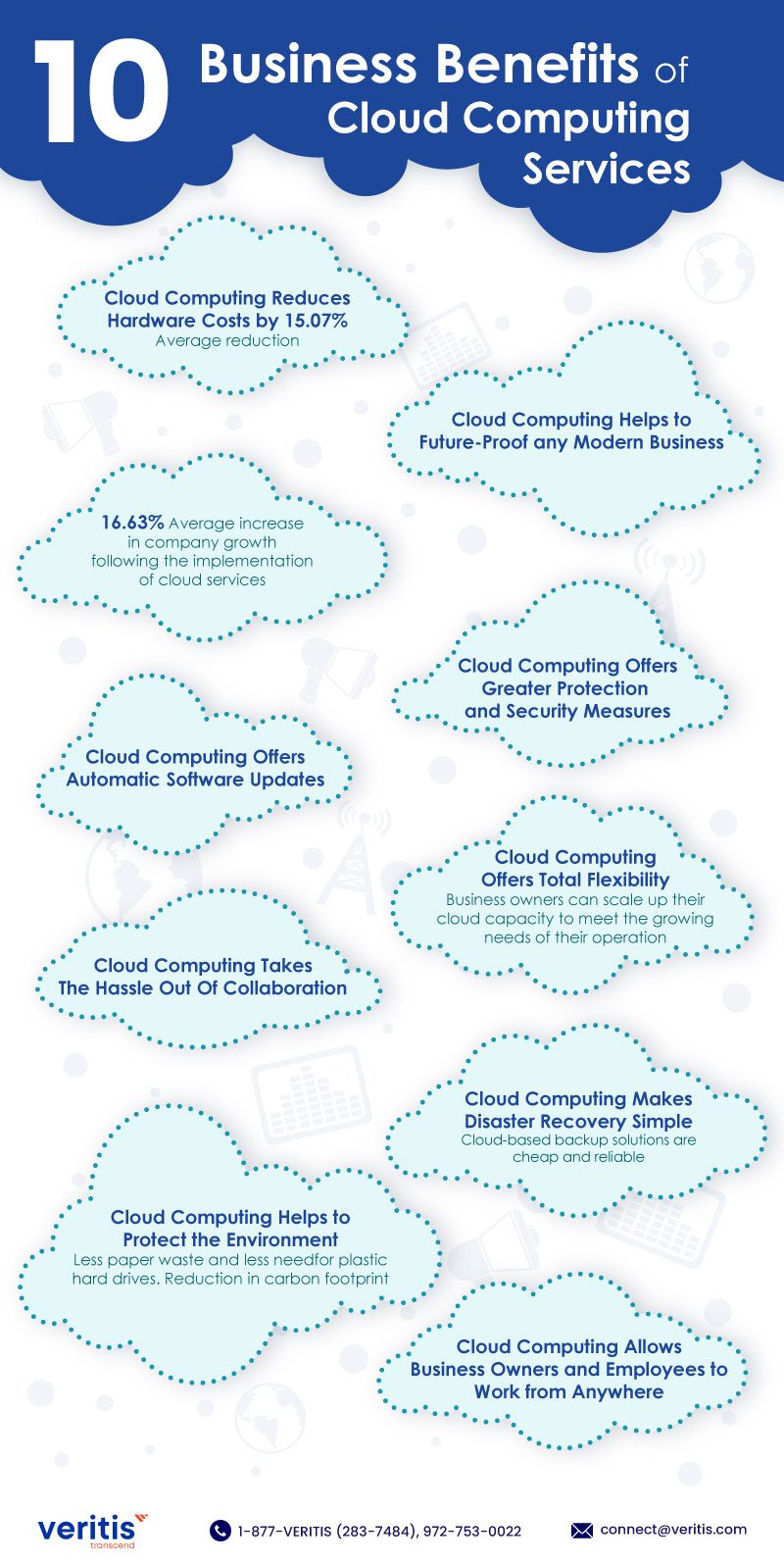Cloud computing has become an increasingly popular choice amongst businesses due to the numerous advantages it offers. It refers to accessing data, software, and services over the internet, rather than having them stored on in-house servers. This article explores 10 specific advantages that cloud computing offers to businesses, including cost-effectiveness, flexibility and scalability, remote collaboration and accessibility, increased data security, disaster recovery solutions, more reliable services, reduced energy costs, increased data analysis and insights, access to the latest and greatest technology, and sustainable growth opportunities. Overall, adopting cloud-based services can help businesses remain competitive, agile, and responsive to market changes, resulting in sustainable business growth.
10 Advantages of Cloud Computing for Businesses
In today’s fast-paced business world, cloud computing has emerged as a game-changer for organizations of all sizes. Cloud computing refers to accessing data, software, and services over the internet, rather than having them stored on in-house servers. It has become a popular choice amongst businesses due to its numerous advantages. In this article, we will explore 10 specific advantages that cloud computing offers to businesses.
1. Cost-Effective Solution
One of the significant benefits of cloud computing is the cost-effectiveness it offers to businesses. Instead of investing in expensive hardware and software, businesses can opt for a subscription-based payment model. This allows small and medium-sized enterprises, in particular, to minimize their initial capital investments and switching expenses that usually arise with traditional IT infrastructure.
2. Flexibility and Scalability
Cloud computing offers businesses enhanced scalability and flexibility, allowing them to respond quickly to market changes. Businesses can scale-up or scale-down their services as per their changing needs, without incurring significant cost overheads. This scalability makes it easier for businesses to accommodate seasonal peaks and troughs and manage their responsive services.
3. Remote Collaboration and Accessibility
With cloud-based applications, businesses can offer their employees access to all necessary data and tools, irrespective of their geographic location. This facilitates remote collaboration, enabling teams to work together on projects in real-time via video conferencing, file-sharing, and other cloud-based collaboration tools.
4. Increased Data Security
Data security is a vital concern for businesses of all sizes. Cloud computing services offer an advantage in this regard as cloud service providers ensure that businesses’ data is safely stored and secured against data loss and cybersecurity threats.
5. Disaster Recovery Solutions
Cloud computing offers recovering abilities in case of natural disasters like floods, hurricanes, and earthquakes. In case of a disaster, businesses can easily recover their data and applications from the cloud, minimizing downtime and data loss.
6. More reliable Services
Cloud service providers usually offer businesses service-level agreements (SLAs) that guarantee an uptime of over 99%. This high level of reliability ensures businesses remain operational at all times, enabling companies to achieve their business objectives and goals.
7. Reduced Energy Costs
Cloud computing services tend to have a lower carbon footprint, which helps businesses save on energy costs. Service providers run their data centers more efficiently, and businesses can save money on energy expenses, unlike traditional data centers.
8. Increased Data Analysis and Insights
Cloud computing offers advanced data analytics features that enable businesses to derive insights from their data easily. These analytics tools are specially designed to run on cloud-based infrastructures, allowing businesses to process vast amounts of data, resulting in improved business intelligence.
9. Access to the Latest and Greatest Technology
Cloud computing services tend to stay updated with the latest technology. This ensures that businesses can take advantage of new and emerging technologies, resulting in increased productivity, efficiency, and agility.
10. Sustainable Growth Opportunities
One of the most significant advantages of cloud computing is sustainable growth opportunities. By replacing traditional IT infrastructure with cloud-based services, businesses can reduce the cost of deploying new applications and services. This cost savings combined with the increased efficiency and scalability that cloud computing offers can ultimately result in the growth of the business.
In conclusion, cloud computing offers businesses of all sizes numerous advantages, ranging from cost-effectiveness, increased flexibility, enhanced data security, and improved business intelligence. By adopting cloud-based services, businesses can remain competitive, agile, and responsive to market changes, resulting in sustainable business growth.
